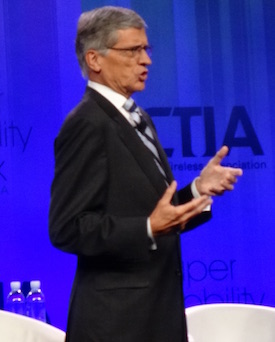Telecoms companies don't manage information, they just transmit data

Honest, dude. You’re a dumb pipe.
There’s one big question at the center of the wrangling over whether Internet access can be regulated under common carrier rules: is it a telecommunications service or an information service? Federal law says telecommunications is a common carrier service and information is not.
When telecom laws were last overhauled 20 years ago, Internet access looked a lot like an information service. Nearly everyone dialled up an online service – America Online or Earthlink, for example – that, at a minimum, handled your email and provided a portal to proprietary data, public but non-Internet protocol content such as Usenet groups, and FTP and other servers, as well as the world wide web.… More




![By Mike Schinkel from Atlanta, GA, USA (Life Preserver Uploaded by Navigans) [CC BY 2.0 (https://creativecommons.org/licenses/by/2.0)], via Wikimedia Commons](https://www.tellusventure.com/images/2016/7/life_preserver.jpg)

![By Anders (Own work) [Public domain], via Wikimedia Commons](https://www.tellusventure.com/images/2016/7/mobile_phone_evolution.jpg)

![By Doc Searls from Santa Barbara, USA (sanantonio_36.JPG) [CC BY-SA 2.0 (https://creativecommons.org/licenses/by-sa/2.0)], via Wikimedia Commons](https://www.tellusventure.com/images/2016/6/tv_tower.jpg)
![By Gigillo83 [GFDL (https://www.gnu.org/copyleft/fdl.html) or CC-BY-SA-3.0 (https://creativecommons.org/licenses/by-sa/3.0/)], via Wikimedia Commons](https://www.tellusventure.com/images/2016/6/offside_lane_closed.jpg)